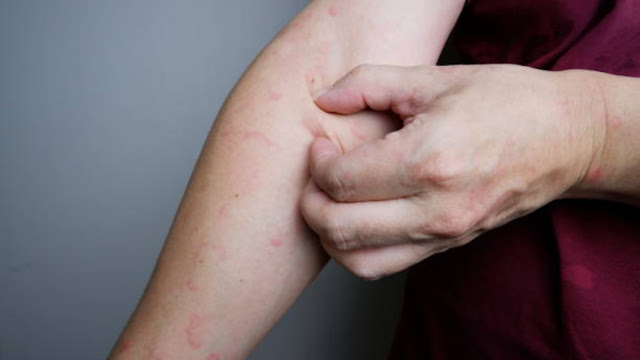- Get link
- X
- Other Apps

As the winter season descends, bringing with it crisp air
and frosty mornings, many people find themselves grappling with an unwelcome
companion: winter rashes. These itchy, dry, and often uncomfortable skin
conditions are a common occurrence when the humidity drops, and the skin
struggles to retain moisture. Understanding why these rashes happen and
learning effective prevention and treatment methods is crucial to keeping your
skin healthy and comfortable during the colder months.
1. Understanding Winter Rashes:
Winter rashes are primarily a result of the skin’s response
to the dry, cold air. Cold air holds less moisture, and indoor heating systems
further exacerbate the problem by drying the air indoors. This combination
leads to a significant decrease in skin hydration, causing it to become dry,
cracked, and irritated. Common winter rashes include eczema (also known as
dermatitis), psoriasis, and asteatotic eczema, all of which are characterized
by redness, itching, and inflammation.
2. Prevention Strategies:
Stay Hydrated: The importance of staying hydrated cannot be
overstated. Drinking an ample amount of water helps keep your skin hydrated
from within, combating the effects of dry air.
Moisturize Regularly: Invest in a good quality,
fragrance-free moisturizer and apply it liberally after bathing and throughout
the day. Thick ointments and creams work better than lotions, especially for
severely dry skin.
Avoid Hot Showers: While hot showers might feel comforting
in the winter, they strip the skin of its natural oils, leading to increased
dryness. Opt for lukewarm water and limit your shower time.
Use a Humidifier: Indoor heating systems can drastically
reduce humidity levels. Using a humidifier in your home can add moisture to the
air, preventing your skin from drying out.
Choose Skin-Friendly Products: Use mild, hypoallergenic
soaps and detergents to avoid further irritating your skin. Avoid products with
fragrances and opt for those designed for sensitive skin.
3. Treatment Methods:
Topical Steroids: For more severe cases of winter rashes,
doctors might prescribe topical steroids to reduce inflammation and itching.
It's crucial to use these medications as directed by a healthcare professional.
Emollients and Bath Oils: Emollients are non-cosmetic
moisturizers that keep the skin moist. Applying them generously helps lock in
moisture. Adding bath oils to your bathing routine can also soothe dry skin.
Anti-Itch Creams: Over-the-counter anti-itch creams
containing hydrocortisone can provide temporary relief from itching. However,
these should be used sparingly and under medical guidance.
Wet Dressings: In more severe cases, wet dressings, where the affected area is covered with a wet cloth or bandage, can be used to rehydrate the skin. This method requires medical supervision.
4. Special Considerations for Certain Rashes:
Eczema: People with eczema must be diligent in keeping their
skin moisturized and avoiding triggers like harsh soaps, synthetic fabrics, and
stress, which can exacerbate symptoms. Managing stress through lessening systems
like yoga or consideration can also be beneficial.
Psoriasis: Psoriasis, a chronic skin condition, may worsen
in the winter due to the dry air. Regular moisturizing, gentle exfoliation, and
prescribed treatments from a dermatologist are essential in managing psoriasis
during winter.
5. When to Seek Medical Help:
If your winter rash is severe, persistent, or not responding to over-the-counter treatments, it's essential to seek medical help. A dermatologist can accurately diagnose the condition and recommend appropriate prescription medications or therapies tailored to your specific skin needs.
Conclusion
Winter rashes are a common annoyance during
colder months, but with the right preventive measures and timely treatments,
you can keep your skin healthy and comfortable. Remember that each person’s
skin is unique, so what works for one may not work for another. It's crucial to
pay attention to your skin's signals, adapt your skincare routine accordingly,
and consult a healthcare professional if needed. By taking proactive steps to
protect your skin, you can enjoy the beauty of winter without the discomfort of
itchy, dry rashes.
- Get link
- X
- Other Apps